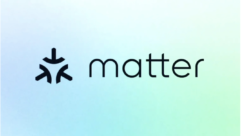Amazon.com sure has been taking a lot of heat lately. I’ve dumped my share of complaints on the company, too. In my April 2014 article, “How Amazon Has Changed Your Connected Home,” I asked: Did you know that Amazon pressures its suppliers to provide certain discount levels, and when they don’t, Amazon makes it harder for you to buy items from those suppliers? That question is now at the heart of a raging industry war between Amazon and publishing conglomerate Hachette, one of the largest publishing interests on the face of the earth.
You know the debate. For ages, publishers and booksellers have negotiated the prices at which retailers (bookstores, Wal-Mart, Target, and others) will sell books and have brokered deals for actually carrying and displaying titles in stores. These deals have evolved with the industry to apply to the way both physical books and eBooks are sold and made visible online. Negotiations can be brutal and can equate to millions of dollars on either side. The recent brouhaha reached a fever pitch not too long ago when Hachette (one of the “Big Five” publishing conglomerates, which includes Harper Collins, MacMillan, Penguin Random House, and Simon & Shuster) threw up its hands, refusing to agree to Amazon’s rather cutthroat terms.
As a result, many Hachette releases—including the J.K. Rowling pseudonymous mystery The Silkworm, to mention a high-profile example—were listed as unavailable on Amazon, with just a button to click so that you could be notified when the book became available. In other words, the books had pages devoted to them on Amazon, but traditional Amazon services such as Add to Cart and Amazon Prime were absent on the page. Translation: You either couldn’t buy them, or the service had slowed down significantly. The net effect was an extremely deep and negative impact on sales. Naturally, people (and most significantly, authors and readers) were upset—at Amazon.
Given some of the tactics that I outlined in my previous article, it’s hard for me to have much sympathy for Amazon, which is just as much a multinational, some-might-say-soulless, corporate conglomerate as Hachette. But it’s also difficult to side solidly with Hachette, which has done its hungry share of gobbling up smaller imprints on its way to behemoth status. Both corporations are in the game in the name of the bottom line. Step back and you’ll see that Amazon is simply a marketplace with its own rules: It doesn’t have to sell Hachette’s books. I end up seeing two Goliaths at each other’s throat. So I don’t fall automatically to one side in this raging debate.
Yet, as a writer and published novelist myself, I edge toward defending Amazon.
When I wanted to get my first book into the book-o-sphere, I turned to Amazon, which offered the easiest route to self-publication, with its Kindle Direct program. (The royalty rate for the self-published author is higher than it has ever been.) When a small press, Permuted Press, bought my second book (based on the success of my first book), it was Amazon that offered the easiest and most fruitful platform for my publisher, with its CreateSpace publishing and distributing program. In short, I owe my publishing success at least in part to Amazon. Whereas the business practices and author relationships of the Big Five are increasingly antiquated and one-sided, Amazon is much more in line with the democratized realities of publishing and particularly e-publishing today. And obviously Amazon is author-focused. More so than the Big Five!
There are countless Amazon-centric success stories now among authors. Whether you like it or not, the publishing industry has evolved. The gates have been flung wide, and there are many more options available to wordsmiths. You might call it a glut, or you might call it opportunity, but the reality is simply that it’s a new world. And Amazon is on the right side.
I never thought I’d say that! Just a few years ago, I lamented how it seemed that online retailers such as Amazon were pushing smaller, local booksellers out of business. I remember how people would stand in front of these independent stores with their signs, imploring people to buy at the little brick-and-mortar stores rather than online. They were rather emotional about the whole business. A lot of people still feel this way, and the purely emotional part of me agrees with them.
Amazon is the face of online retail in general and specifically ebook sales, and it’s easy to antagonize the company for the fact that it represents the intrusion of a new market reality on the world of commerce. We are a far different buying public from the one that thrived a mere decade ago, and we’re still trying to find our bearings. Most of all, we crave convenience, speed, no-hassle, speedy (if not instant) gratification. We want our items to come directly to us; we don’t want to have to locate a destination to find it. We don’t even want to pick up the phone. These are not attitudes conducive to the Big Five booksellers, which have been slow to adapt.
From the book-creation angle, the momentum is clearly with Amazon (unless you’re a giant name in the industry), and from the book-consumption angle, the momentum remains with Amazon, which has been on the cutting edge of e-publishing from the start. Even if you still view Amazon as a terrible blight on publishing, it seems as if there’s little we can do to reverse its upward trajectory now. But is it not a beast that we ourselves created?
A recent article by Mishka Shubaly, “Sympathy for the Devil: In Defense of Amazon,” resonated with me. He wrote, “Jeff Bezos didn’t build Amazon: We did. Amazon didn’t buy out and board up independent bookstores. We abandoned them. We chose convenience over community, commerce over art. The Big Five sell glossy covered, sensational page-turners and celebrity tell-alls and escapist vampire soft-porn because this is what we’ve told them we want to read.”
Remember that the next time you’re ready to shop for a book.










